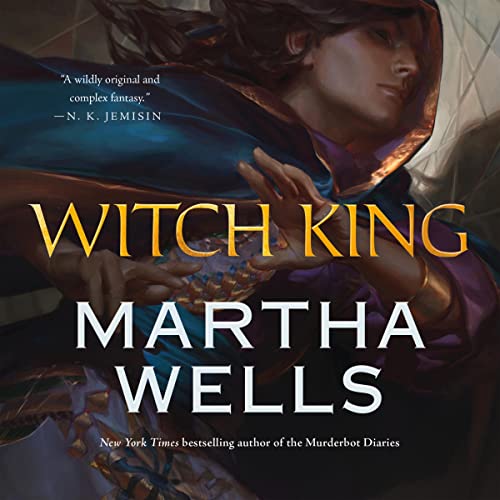 Witch King by Martha Wells
Witch King by Martha Wells Narrator: Eric Mok
Format: audiobook, eARC
Source: supplied by publisher via NetGalley
Formats available: hardcover, ebook, audiobook
Genres: fantasy
Pages: 432
Length: 13 hours and 9 minutes
Published by Macmillan Audio, Tor Books on May 30, 2023
Purchasing Info: Author's Website, Publisher's Website, Amazon, Barnes & Noble, Kobo, Bookshop.org, Better World Books
Goodreads
A story of power and friendship, of trust and betrayal, and of the families we choose.
"I didn't know you were a... demon.""You idiot. I'm the demon."Kai's having a long day in Martha Wells' Witch King....
After being murdered, his consciousness dormant and unaware of the passing of time while confined in an elaborate water trap, Kai wakes to find a lesser mage attempting to harness Kai’s magic to his own advantage. That was never going to go well.
But why was Kai imprisoned in the first place? What has changed in the world since his assassination? And why does the Rising World Coalition appear to be growing in influence?
Kai will need to pull his allies close and draw on all his pain magic if he is to answer even the least of these questions.
He’s not going to like the answers.
My Review:
The opening of Witch King is both a bang and a whimper as Kai wakes up dead (really, truly, sorta/kinda) and has to literally pull himself and the pieces together as he goes. We – and he as it turns out – are plunged into the middle of a story where neither knows quite how we got here – or is fully cognizant of what it is going to take to get out.
It’s also more than a bit of a “how it started/how it’s going” story, with both parts told in parallel as it goes along. Kai doesn’t know how he ended up entombed underwater as the story begins, so he’s trying to figure out how he and his friend and ally Ziede Daiyahah arrived in this most insalubrious location and circumstance.
They are also both desperate to learn what happened to the other members of their family during what they presume was a sudden disappearance from the world’s stage – just as they were about to step onto that stage for a critical negotiation.
But their immediate problem, once they dispose of the rogue agents who planned to assassinate them on the spot – only to provide a path for their escape instead – is to figure out what happened while they were gone. Beginning with locating – and rescuing if necessary – Ziede’s rather formidable wife, Tahren Stargard, along with Tahren’s occasionally hapless and always preoccupied younger brother Dahin.
In that process of chasing clues from pillar to post and all around the territory of the Rising World Coalition of which Kai, Ziede and Tahren are founders tasked with guarding the balance between the more, let’s call them human and mortal, factions, the trail leads through all the light and dark – all too frequently dark – places they fled through on their way to the founding of said coalition. Forcing Kai to walk through memories that he hoped to never revisit no matter how long his nearly immortal life might turn out to be.
Someone is leading them on a not-so-merry-chase. Someone, or several someones, is about to discover just how swiftly the tables can be turned – or perhaps just how long ago those tables were upended..
Escape Rating A-: Witch King is a book that really, truly, seriously rewards a second reading. I’m saying this so emphatically because I read it back in December for a Library Journal review, and at the time I liked it but didn’t love it. I listened to it this month and on the second go around I found it so compelling that I listened to the final quarter in a single go. (I played a lot of mindless solitaire that afternoon!)
I think there were several reasons why it worked so much better for me that second time around, and I think those reasons cannot all be laid at the feet of the narrator even though he was quite good and a terrific choice to serve as Kai’s first-person voice.
 I believe that just how much anyone will like Witch King depends on what you were expecting from it. If you’re looking for more Murderbot, these are not the droids – or the SecUnits – you are looking for. (Those are in System Collapse coming out in November.)
I believe that just how much anyone will like Witch King depends on what you were expecting from it. If you’re looking for more Murderbot, these are not the droids – or the SecUnits – you are looking for. (Those are in System Collapse coming out in November.)
If you’re looking for epic fantasy, this isn’t quite that either. Well, the setting feels like epic fantasy, but there’s not enough worldbuilding, or perhaps that not enough explication of the worldbuilding – particularly the wildly exploitative magic system – for this to qualify. Putting it another way, the worldbuilding is very densely packed, the reader is dropped in the middle of it, and there’s not nearly enough book for the reader to get up to speed on how this place is supposed to work before it seems to be falling apart around Kai’s and Ziede’s ears.
And if that title, Witch King, has you expecting anything like what is usually referenced by the term “witch”, well, this definitely isn’t that. Kai isn’t actually a witch at all, either by his definition or ours – and that has nothing to do with the gendered term witch and everything to do with what Kai really is. He’s a demon. Just not exactly what we think of as a demon, either. In other words, in spite of the genres that Goodreads has put this in, Witch King is not remotely paranormal as that’s usually defined.
And not that certain factions in his world haven’t taken all of the monstrous implications of the word demon and used them to apply to Kai’s people, who may come from the “Underearth” but not from any location that corresponds in any way to anything like Hell.
And not that there isn’t evil in Kai’s world, because there certainly is. It’s just the usual evils of power – and the desire for it – corrupting, and absolute power corrupting absolutely.
What Witch King really is, IMHO, is the story of not just one but two profound, life altering friendships, one of which, sadly, can only be honored in memory. And is, to the last full measure, leaving the reader with just a touch of heartbreak in its glorious end.
I hope someday the author returns to this world, because it’s beautiful and FUBAR-ed and fascinating in the way that all the best high fantasies are. And I’d love to find out what happened in the years between how it started and how it has, at least so far, ended.

 Red Team Blues (Martin Hench) by
Red Team Blues (Martin Hench) by  Our Lady of Mysterious Ailments by
Our Lady of Mysterious Ailments by  Escape Rating A+: Our Lady of Mysterious Ailments is just like
Escape Rating A+: Our Lady of Mysterious Ailments is just like 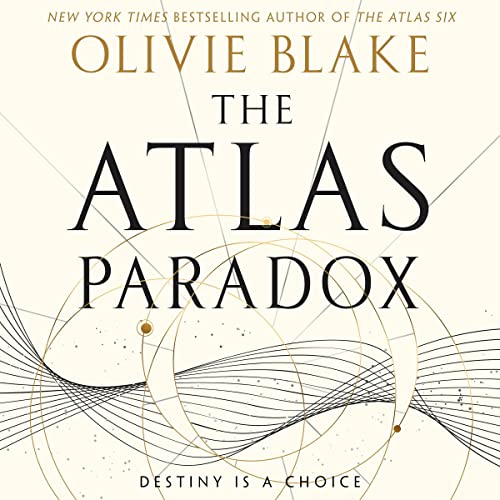 The Atlas Paradox (The Atlas, #2) by
The Atlas Paradox (The Atlas, #2) by  This story of dark academia, utter corruption and potentially the end of the world follows directly after the events of
This story of dark academia, utter corruption and potentially the end of the world follows directly after the events of  The Atlas Six
The Atlas Six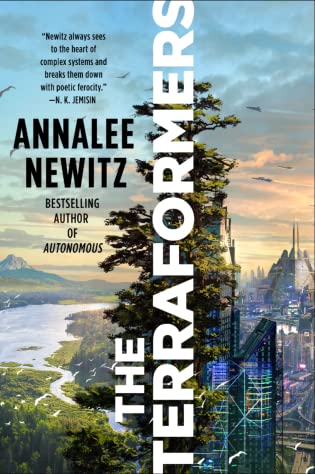 The Terraformers by
The Terraformers by 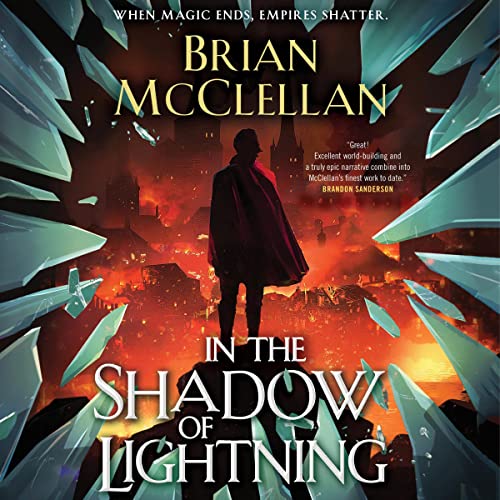 In the Shadow of Lightning (Glass Immortals, #1) by
In the Shadow of Lightning (Glass Immortals, #1) by 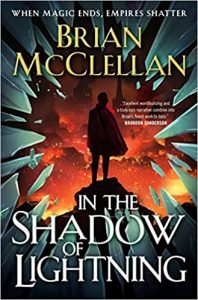 Escape Rating A+: “Glassdamn.” It rolls easily through the mind, or trippingly off the tongue, as though it’s an epithet that we’ve always used – or at least could have if we’d had a mind to. And glassdamnit but this is a terrific story.
Escape Rating A+: “Glassdamn.” It rolls easily through the mind, or trippingly off the tongue, as though it’s an epithet that we’ve always used – or at least could have if we’d had a mind to. And glassdamnit but this is a terrific story.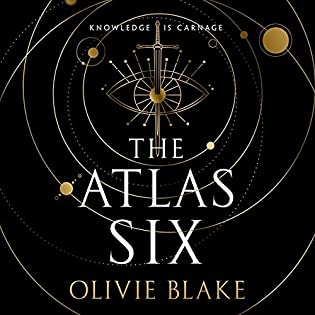 The Atlas Six (The Atlas, #1) by
The Atlas Six (The Atlas, #1) by 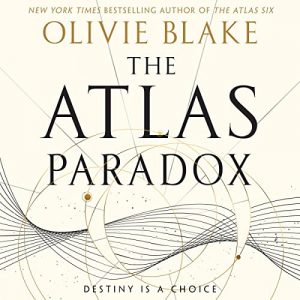 Which admittedly does ramp up the tension VERY dramatically for the second book in the series,
Which admittedly does ramp up the tension VERY dramatically for the second book in the series, 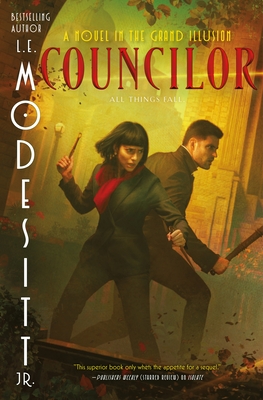 Councilor (The Grand Illusion #2) by
Councilor (The Grand Illusion #2) by 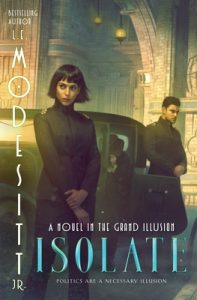 Escape Rating A: Just as with the first book in the series,
Escape Rating A: Just as with the first book in the series, 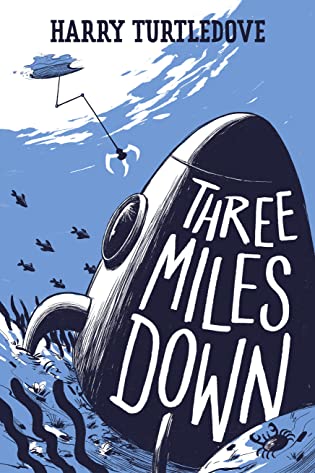 Three Miles Down: A Novel of First Contact in the Tumultuous 1970s by
Three Miles Down: A Novel of First Contact in the Tumultuous 1970s by 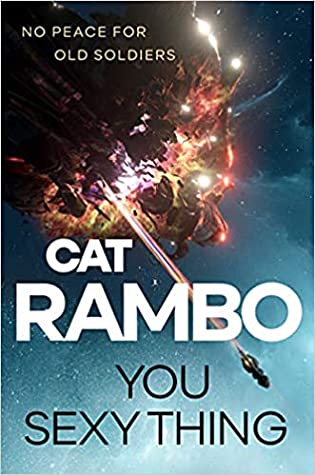 You Sexy Thing (Disco Space Opera #1) by
You Sexy Thing (Disco Space Opera #1) by